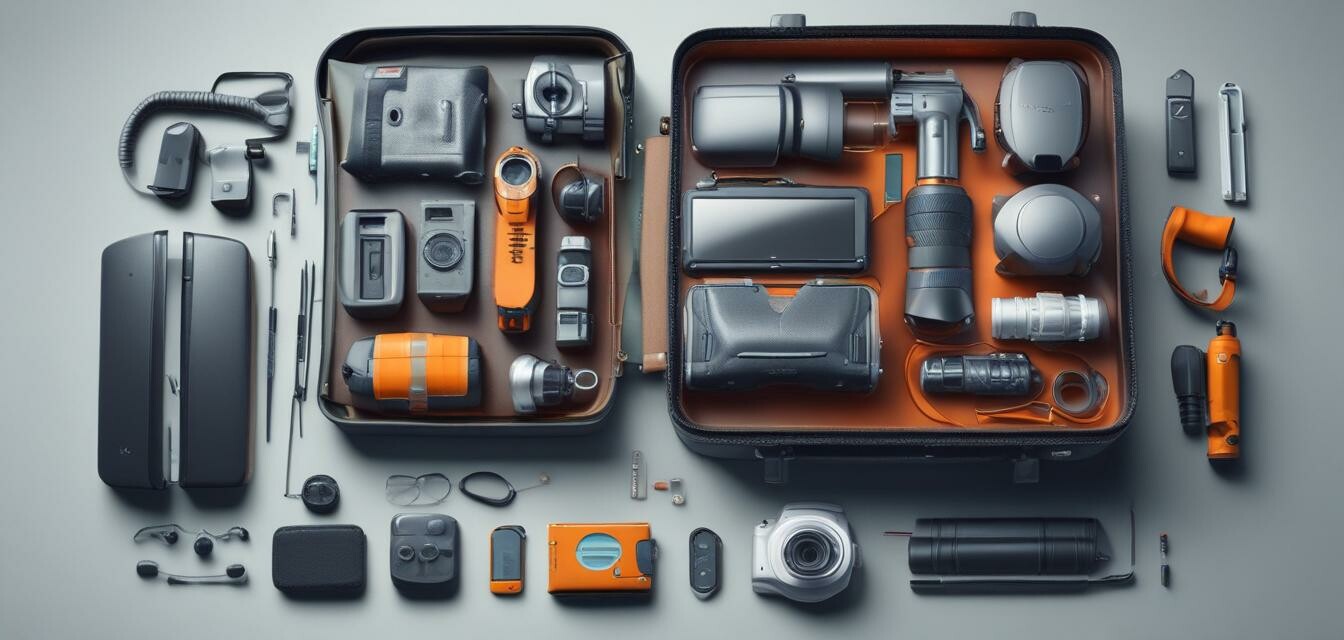
Travel Safety Innovations in 2025
Key Takeaways
- The integration of IoT devices is revolutionizing traveler safety in 2025.
- Smart luggage solutions enhance security and convenience.
- AI-driven applications provide real-time safety alerts and updates.
- Sustainability and eco-friendly materials are becoming prioritized in travel gear.
- Traveler education on safety protocols is crucial for overall security.
As we step into 2025, the travel industry is embracing new technologies and innovations to enhance traveler safety. From smart luggage to apps providing real-time information, these advancements are not only making travel easier but significantly safer. In this article, we will explore the latest safety innovations in travel gear, tech gadgets, and effective strategies to keep travelers secure.
Innovative Tech Gadgets for Travelers
The modern traveler is now equipped with a range of tech gadgets designed to improve safety on the go. Here are some of the most notable innovations:
- Smart Luggage: These self-locking bags are integrated with GPS, anti-theft alarms, and charging ports.
- Personal Safety Devices: Compact devices that can send distress signals to emergency contacts or alert authorities.
- Portable Water Purifiers: Made for on-the-go hydration, these gadgets ensure travelers have access to safe drinking water.
- Wearable Safety Tech: Smart bracelets and watches that monitor health metrics and location.
Smart Luggage Solutions
Smart luggage has become a game-changer in the travel industry. Not only do they offer convenience, but these solutions also incorporate safety features that protect your belongings.
| Feature | Benefit |
|---|---|
| GPS Tracking | Locate your bag if lost or stolen. |
| Built-in Locking Mechanism | Restrict access to your belongings with ease. |
| Power Bank | Charge your devices while on the move. |
AI-Driven Safety Apps
With advancements in artificial intelligence, travel safety apps have become essential tools for modern travelers. They provide:
- Real-Time Alerts: Notifications of local threats, natural disasters, or severe weather.
- Crowd-Sourced Safety Reports: Information from other travelers about dangerous areas or incidents.
- Emergency Assistance: Quick access to local contact numbers for law enforcement and medical emergencies.
Apps to Consider
While there are many apps available, consider those that provide localized information and have solid user reviews. Check out our Travel Tips for recommendations on which apps to download before your next adventure.
Sustainability and Travel Safety
As travelers become more environmentally conscious, manufacturers are prioritizing sustainability in their products. Eco-friendly luggage and accessories are not just safer for the planet but often incorporate innovative safety features as well. Examples include:
- Recycled materials that are durable and long-lasting.
- Eco-friendly locks and zippers that reduce the risk of theft.
- Travel bags designed for better organization, reducing the need to rummage through luggage.
Safe Practices for Travelers
While gadgets and applications enhance safety, smart travelers adopt best practices to ensure their personal security:
- Keep your valuables in your carry-on or on your person.
- Familiarize yourself with local customs, laws, and emergency contacts.
- Share your itinerary with friends or family for accountability.
Conclusion
In 2025, travel safety is evolving rapidly, thanks to technological innovations and a heightened focus on sustainability. By embracing smart luggage solutions, AI apps, and best practices, travelers can enjoy safer journeys. Stay informed about news and trends in travel safety to make the most of your travel experiences.
Pros
- Enhanced security measures provide peace of mind.
- Convenience through technology improves the travel experience.
- Sustainability enhances brand image among eco-conscious travelers.
- Increased accessibility to important information on the go.
Cons
- Over-reliance on technology can lead to complacency.
- Costs of advanced travel gear may be higher.
- Potential for tech malfunctions in critical times.
- Privacy concerns with GPS tracking features.